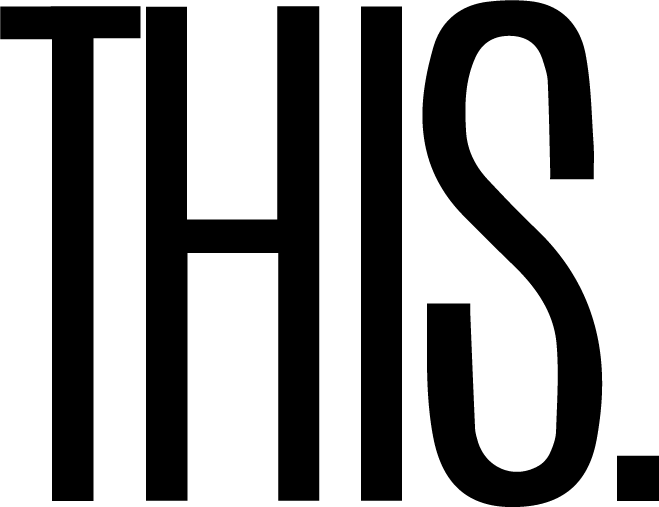Negativity and selfishness gets great publicity in our social networking, indirect-contact society. You’d be led to believe the world’s running low on good people and that no one cares for or respects one another anymore. Their only concerns are themselves; and when they’re in need, no one is willing to lend them a hand without reward.
This is not the case. Kind, caring, selflessly-generous people still exist. Jedidiah Thurner is a shining example.
A passionate speaker, selfless humanitarian, and transformative architect, Jedidiah is the Executive Director of Missions.Me, an organization that sends people on life-changing missions worldwide.
Orchestrating outreaches and humanitarian campaigns nationally and internationally, the organization has historically impacted lives in Honduras, Peru, Dominican Republic, and Nicaragua with its “1Nation1Day” movement. Reaching 3.2 million people face-to-face, it assembles the largest foreign missions team in history.
Committed to changing the world and fulfilling God’s commission to disciple nations, Jedidiah’s involvement with volunteer movement Love Has No Limits and event campaigns like 1DayLA has assisted people affected by the pandemic and helped children in the foster system find families.
I asked Jedidiah Thurner to tell me about a time when he did something nice for someone that he didn’t know. Here’s what he shared.
“Most of the work I do right now, with a large scope and scale, is for millions of people I’ll never meet. Every day there’s something I’m doing for somebody because that’s just how we operate.
Our last campaign in Peru, we had 10,000 volunteers come from 600 different organizations, from 43 different nations. I didn’t know thousands of them, who all had the ability to now know what it’s like to give back, to impact another life, to unite with anyone to do good and with nobody to do wrong, as Frederick Douglas would say. To be brought into this divine cycle of ‘because I love I give, because I give I live, and because I live I love’.
In that campaign we reached 1.4 million people face to face in 7 days. Out of those people reached I know a couple hundred of them.
In our four “1Nation1Day” campaigns, these big national movements, we’ve given 700,000 people free medical aid and access to clean water wells.
In Nicaragua alone we built 538 brand new homes for families in extreme poverty at the request of the President. I didn’t meet one of those families. We’ve distributed a million parasite pills in the Amazon. I didn’t meet one of those individuals.
We’ve equipped 91,000 leaders, influencers, agents of change, social entrepreneurs, mobilized 19,000 people in 28 days to serve a nation they’re not from. The current lifework I’m a part of, every initiative is helping people I’ve never met.
In L.A. we have this massive campaign with 7 strategic initiatives really dealing with a problem cycle that’s facing America statistically, not by feelings but by fact. The #1 issue facing our nation is fatherlessness. That is a data-driven response.
Sure, there’s systematic racism that has increased fatherlessness in certain cultures but there’s still fatherlessness regardless. It’s still a problem. Fatherlessness leads to broken homes, broken homes lead to neglect and abuse, and neglect and abuse leaves hundreds of thousands of kids in an overburdened child welfare system annually, which becomes a statistical cesspool of the worst of the fruit.
80% of our inmates spent time in foster care.
40% of all kids who age out of the system will be homeless in 2 years.
56% of all girls who age out of the system will be pregnant without a partner present by age 21.
There’s 100,000 kids annually being trafficked predominantly for sexual services, and 60,000 of them are connected to foster homes or group homes.
We’ve created 7 initiatives that strategically close the gap. Not just working outside of the system but working within the system.
One of the things we’ve done, we’ve said, hey, there’s 7,000 kids in L.A. stuck in the system, legally separated from their parents that could be adopted but no one wants to adopt them, and 6,300 of that 7,000 don’t even want to risk rejection by pursuing adoption.
But there’s 700 kids right now in L.A. that want a family. They’ve been rejected, legally separated from their parents, have no place to call home, and want a family right now. And no one’s told their stories.
So, in January and February we actually filmed 64 kids in the system. We rented out the LA Coliseum and an Air Force base in Riverside. For one hour these kids had the stadium to themselves with the family that fostered them. They could run the stadium, throw balls, they got gifts, they got gift cards, they got food cards, they got interviewed by ex-NFL players who asked them their stories.
We captured all 64 of their stories.
Hey my name’s Tommy. I’m 9-years-old. I like video games. Here’s what a dad would mean to me. Here’s what a mom would mean to me. Here’s why I want a family. Here’s why this is important.
While we’re filming these stories – I’m starting to get emotional – one of the volunteer families that was running one of the games met a 3-person sibling set, and they said we want to adopt these kids! And they started the journey to adopting those 3 kids who got filmed that day, who’d been stuck in the system for multiple years!
I don’t know the volunteer parents. I don’t know the 3-sibling set. I wasn’t even there that day. But I heard the story about 3 kids no one wanted that never had a voice.
Our city’s forgotten about them. Our mayor never mentioned them one time. Our governor never mentioned them. Because they don’t vote. This crisis has actually been exasperated in Covid. Abuse has exasperated in Covid, and the primary mechanism established by the government as a safeguard for these kids is school, it’s coaches, it’s classrooms, it’s teachers.
Reporting has gone down 40% in crisis for abuse in homes because the mechanism to protect it has gone away. We know that the abuse has gone up 250%. That is a moment when I hear a story about something that no one was even trying to solve.
We tried to bring a solution by filming these kids. On the counties website you used to see a name and a bio, you never even saw a jpeg! Some of them you only saw a photo. Now a family that’s actually pursuing fostering or adopting can now watch a video of a kid that they could adopt!
The fact that the event allowed a family to step in and 3 kids to now get adopted… If that’s all we did was get these three kids out of a statistical cesspool and into a safe home, that would be amazing. What’s cool though is in 2 ½ months we’ve had over 1200 new families sign up to foster and adopt! That’s 1200 people who never considered this as an option but have now stepped up to be part of the solution.
We want to adopt all 700 kids in the system.” |THIS.
[By Mr. Joe Walker]
“We are the ones who make a brighter day, so let’s start giving.” – ‘We Are the World’


![Shining Example featuring Crystal Lewis [A Column about Acts of Kindness]](https://i0.wp.com/thisent.com/wp-content/uploads/2022/04/Crystal-Lewis.png?resize=218%2C150&ssl=1)
![Shining Example featuring Erica Munchbach [A Column about Acts of Kindness]](https://i0.wp.com/thisent.com/wp-content/uploads/2022/03/Erica-Munchbach-2.jpg?resize=218%2C150&ssl=1)
![Shining Example featuring Candi Carpenter [A Column about Acts of Kindness]](https://i0.wp.com/thisent.com/wp-content/uploads/2022/03/candi-carpenter_299404-scaled.jpg?resize=218%2C150&ssl=1)
